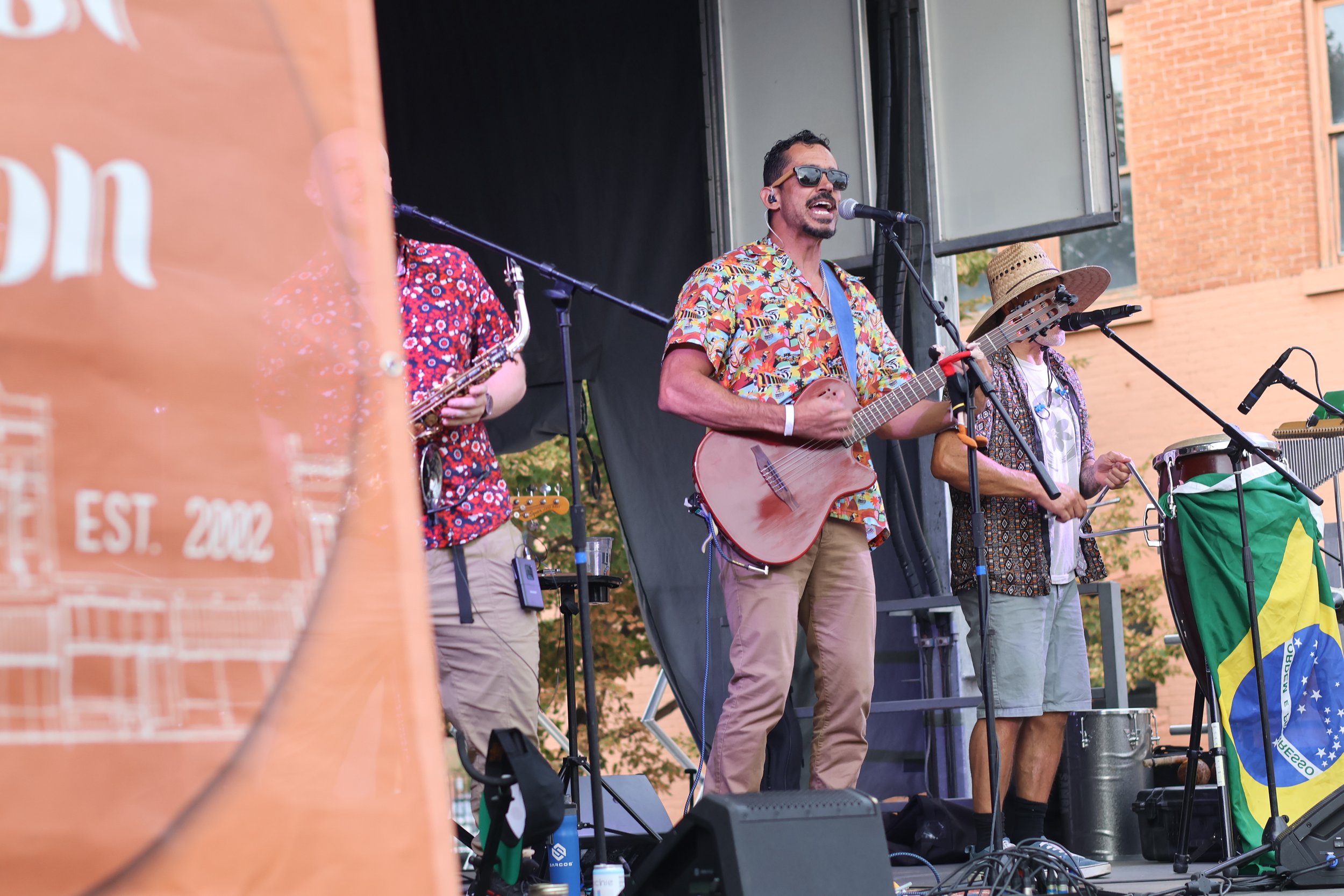Harvest Moon Shines with the Culture of Ogden
On Saturday, Sept. 20, Ogden’s 23rd annual Harvest Moon Celebration Brought Community and Cultures Together To Mark Summer’s End
NEWS
Tutulli Ballet Folklorico performance at the 23rd annual Harvest Moon Celebration, Saturday, Sept. 20, 2025. Photo provided by Ogden Downtown Alliance
The smell of sizzling barbecue mingled with fresh-baked bread lingered through the air as music from local artists carried down the street. From handmade jewelry to global street food, vendors turned the downtown corridor into a showcase of Ogden’s many cultures.
On Sept. 20, Ogden closed out its summer farmers market with the annual Harvest Moon Celebration, transforming Historic 25th Street into a gathering place where community members browsed tents, sampled food from local restaurants, and met the faces behind small businesses.
“Our mission is to promote vibrancy and economic development in downtown Ogden,” said Cecily Kiss, the Community Partnerships Director of Ogden Downtown Alliance. “We like to support the small businesses, and creating these events and creating these spaces for folks to come out and come together in the community, allows us not only to create a vibrant and thriving and economically healthy downtown, but it also helps us to create community.”
Ogden Downtown Alliance (ODA), a local nonprofit in Ogden, partners with businesses in Ogden’s central business district to organize events like Farmers Market Ogden, the annual Harvest Moon Celebration, Ogden Arts Festival, and Historic 25th Street Car Show.
In the summer, the ODA’s seven staff members, along with volunteers, transform 25th Street by hauling out more than 100 garbage cans, setting up nearly 300 booths, and guiding 20,000 visitors through the event, Kiss said.













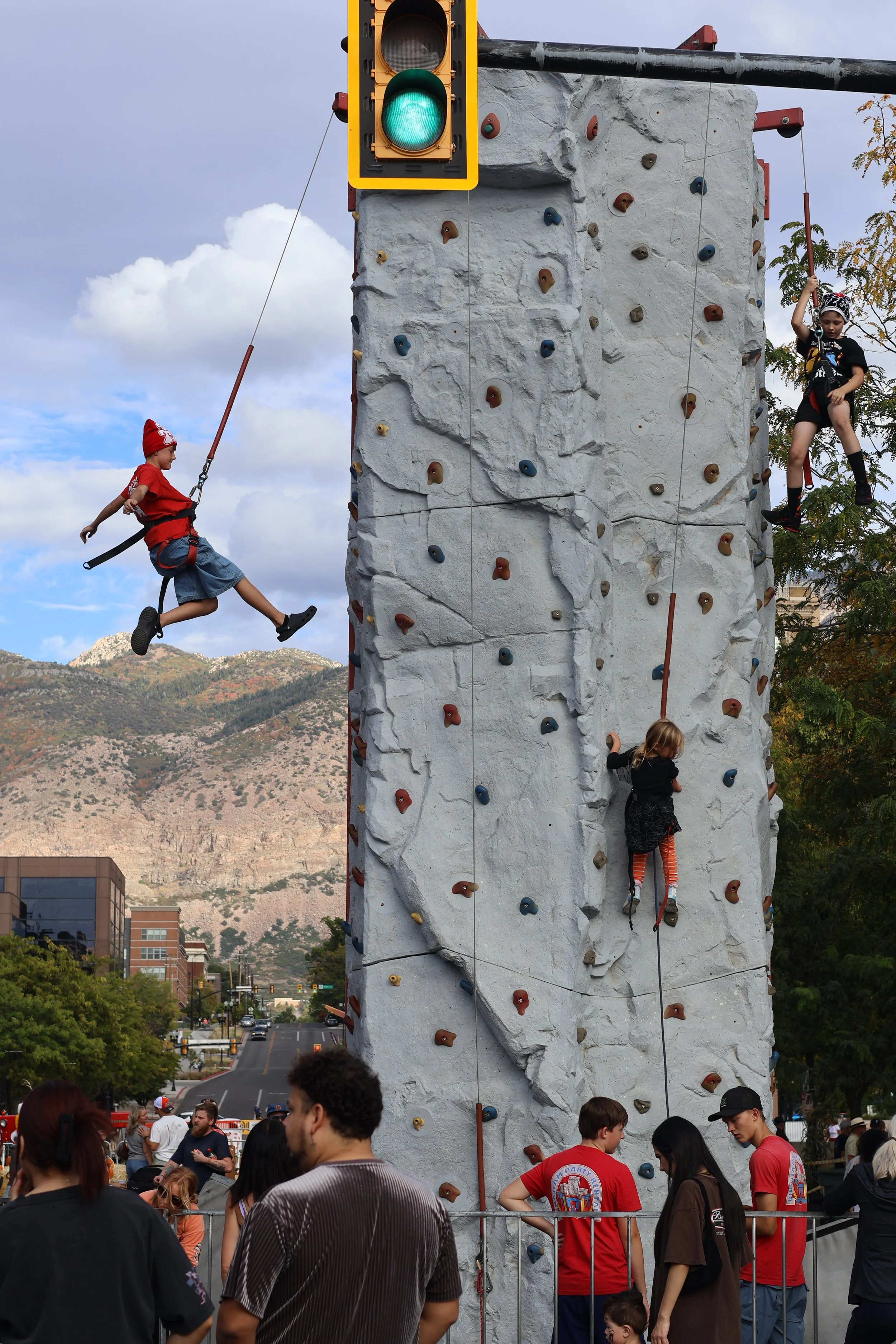





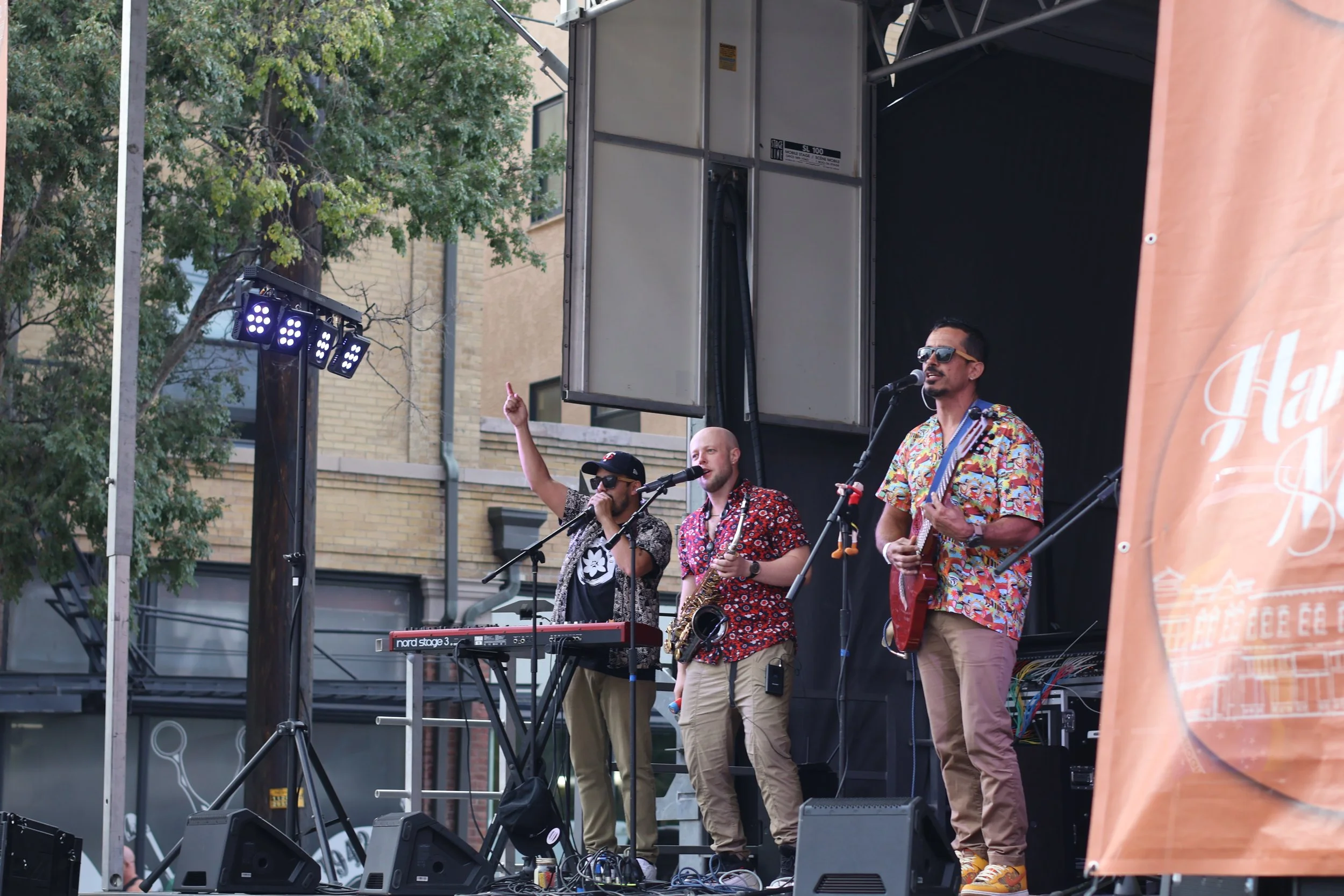


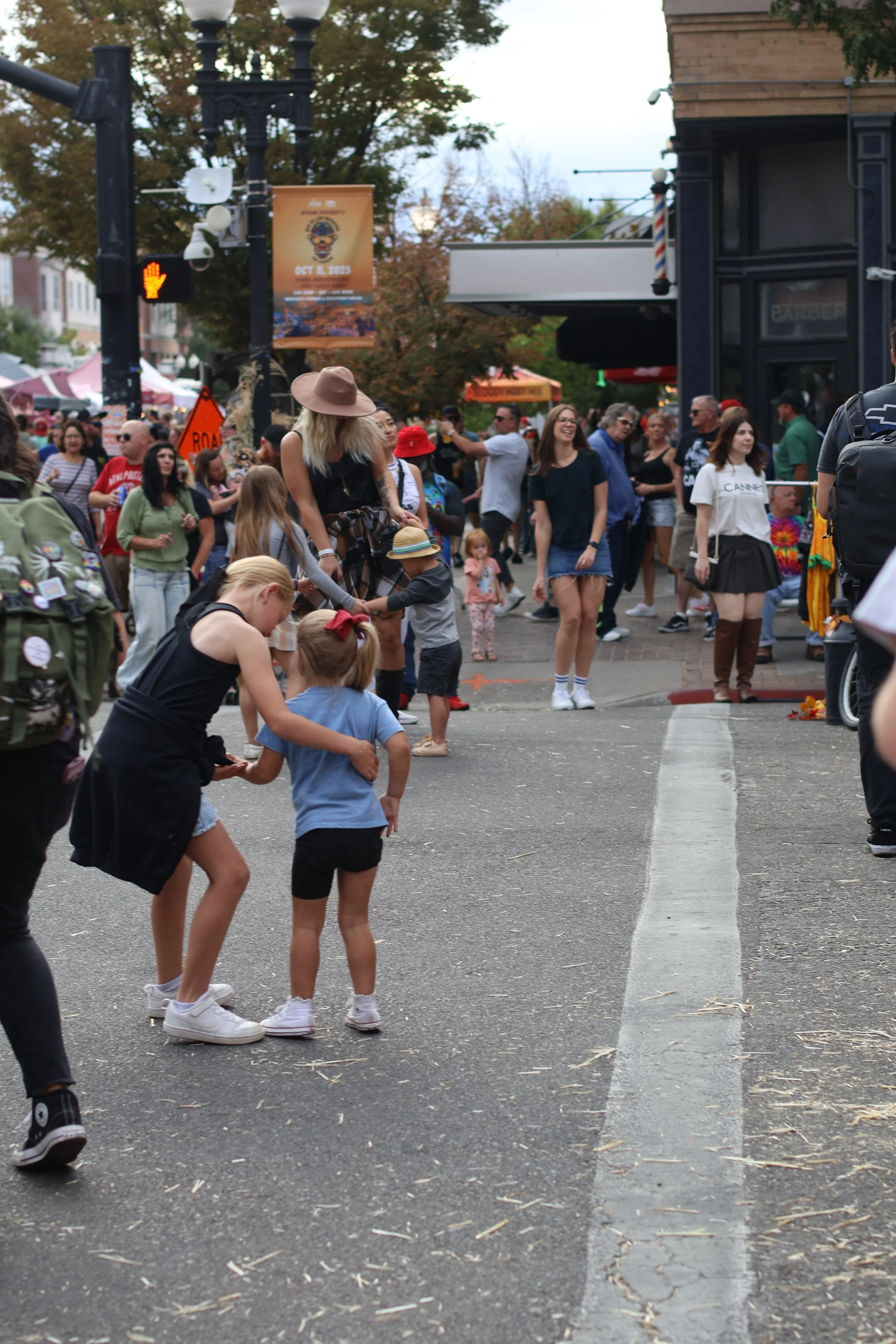
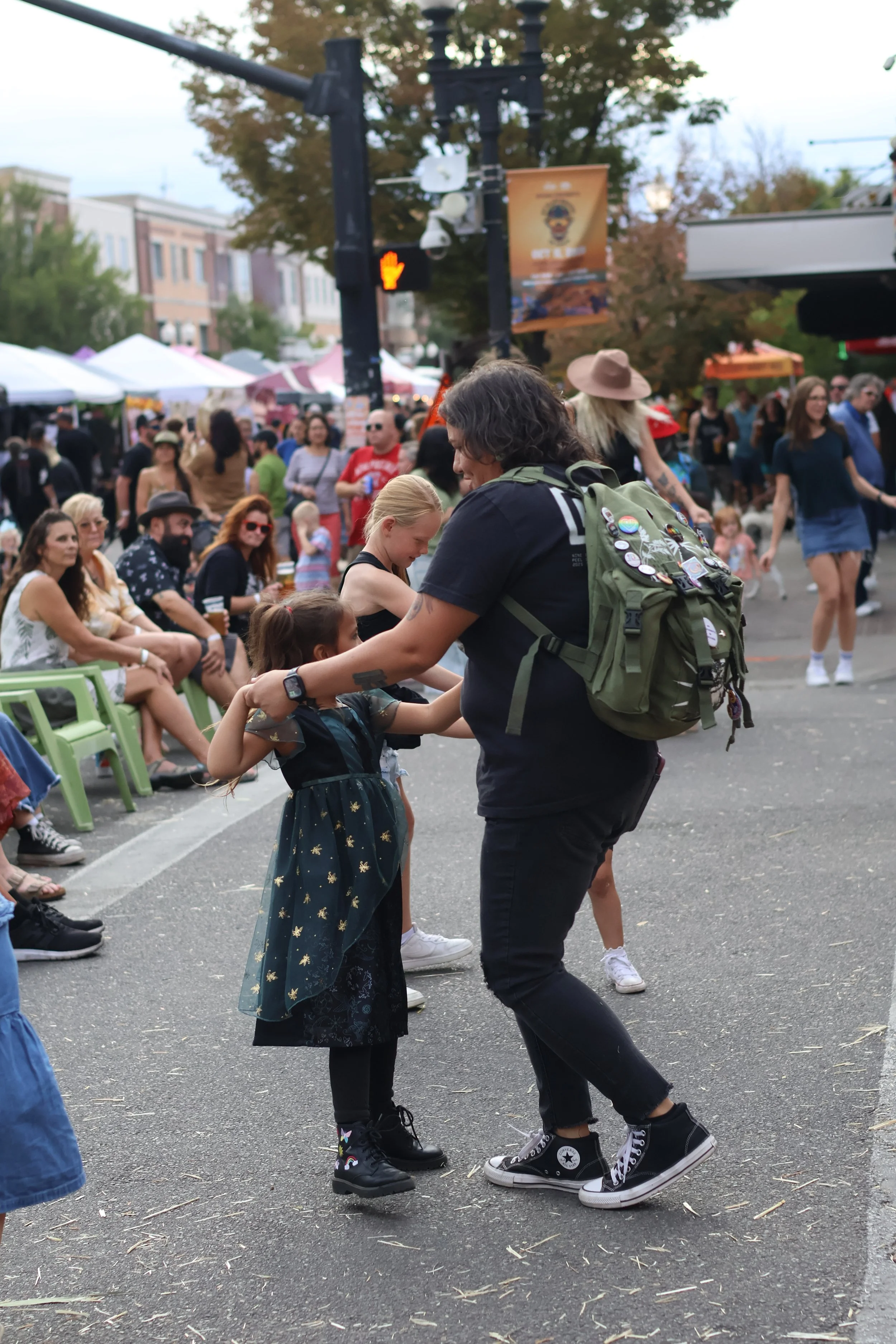






Photos by Deann Armes
Volker Ritzinger, owner of Volker’s Bakery, can be found every weekend at the Ogden farmer’s market selling his European-style breads. For him, the way ODA runs the market makes a difference.
“It means a lot to me to come here in the morning and get treated nicely,” Ritzinger said. “This should be a blueprint for every market, the way they manage it.”
Ritzinger said he learned to bake at just five years old in his father’s bakery in Austria. When he moved to Utah at 24, he opened Volker’s Bakery, bringing those organic recipes with him and later incorporating German, Italian, and French techniques into his breads.
Ritzinger, who has been selling at farmers markets in the state for decades, said Harvest Moon and the weekly market are about more than just selling bread; they’re connecting with the people who eat it.
“It's a little bit more education for people. They get into it closer to see what they're actually eating,” he said. “We are what we eat, and so we want to know what you eat, and we can talk directly to the person that's selling you this stuff.”
Ritizinger’s story didn’t stand alone. Just a few booths down, the smell of smoked brisket drifted through the air from David Evans’ wood-fired smoker.
“My family is rich in barbecue,” Evans said. “I learned to cook about 40 plus years ago. I come from Arkansas, my dad lived in Texas, so that’s where I got my Texas wood-style barbecue from.”
While Evans tended the fire, his two daughters greeted customers and sold plates of slow-cooked meat. For Evans, barbecue is not just about making a living – it’s about keeping a family tradition alive.
“So many family members can cook great, and then they die, and then you lose the recipes,” he said. “I don’t want to lose it. So, I’m passing this on to my kids. That way they can keep the name going.”
Throughout the evening, dancers from Tutulli Ballet Folklorico performed traditional routines from across Mexico, drawing a crowd as they enacted stories and interacted with the audience.
Abish Judd, head of the Tutulli Ballet Folklorico, said the performances give dancers a way to celebrate their heritage while educating others.
“A lot of people don't know a lot about different cultures,” Judd said. “Mexico is a whole country full of culture, and when we come and dance and show them those different cultures through our dance, music, and costumes, they see there's a lot of difference between one part of Mexico and another part of Mexico.”
Culture at the market isn’t only about food or dance. For some, it’s about being seen.
Kye Hallows, co-founder of Lavender Vinyl, said the market helps give their queer-owned record store the visibility it needs.
“Visibility is the number one thing,” Hallows said. “Even now, almost 10 years into business, people walk by all the time, and they’re like, ‘Oh my God, I had no idea there was a record store right here.’”
Others shared that same feeling of connection. Diego Brazuca, lead singer of the Utah-based Brazuca Band, said performing at events like Harvest Moon has allowed his group to reach new audiences.
“We have a very welcoming crowd in Utah,” Brazuca said. “I think we started targeting the Brazilian community and then our music just got too big, and people liked it, so we kept doing it.”
Brazuca said that kind of response makes him hopeful for Utah’s future.
“We’ve seen other bands start singing in Spanish and Portuguese too,” Brazuca said. “Hopefully, we see a lot more diversity in Utah, and we’re happy to be part of it.”
As barbecue smoke thinned and music faded, 25th Street still buzzed with conversation late into the night. Kiss offered a sign of the community coming together.
“I think one thing about Ogden that I really love is that it’s truly a melting pot,” Kiss said. “You have people from all walks of life, backgrounds, economic backgrounds. But all of these folks can come together on common ground to enjoy these events, to enjoy Ogden, to be part of the community.”
The Brazuca Band perform at Harvest Moon Celebration. Photo by Deann Armes



